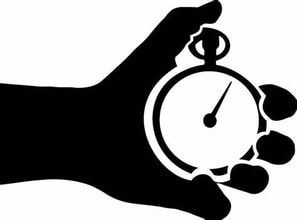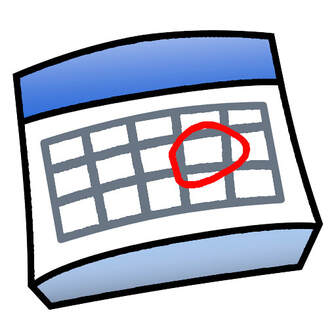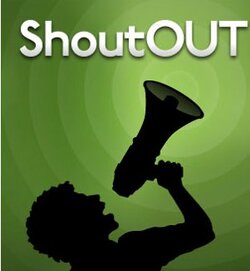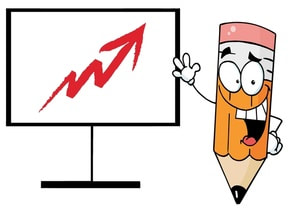 Timing is everything in life, but even more so for Indie authors who are trying to promote their books on a limited (or even zero) budget. Here at Selfishgenie we track our sales on a day by day, week by week, month by month basis so that we can work out when is the best time to advertise our books. Some days we see more people buying books than on other days, so they are the days we want to advertise, so that we can catch the readers' attention on the days when they are buying. That doesn’t mean to say we don’t advertise books on other days. After all, people are all unique and each person has their own shopping habits. But we know that, in broad terms, there are days when more people buy books than other days. Those are the days when we may consider increasing our advertising spend. I’ll go into why those variations exist in a moment.  By tracking people’s book purchasing habits over a longer period of time we can also work out when to do promotions. Again, I’ll go into why that may be in a moment. But that same timing issue extends to when we should launch our books. There are some months of the year when it is better to launch a book than others. I’ll be talking about the UK here, but the same rules probably apply wherever you live. All you have to do is adjust to suit your calendar. June and early July are a good time to launch a book in the UK. Why?  Because the majority of people take their vacations in July and August and will be looking for something to read while they hang around in airports, sit in their aircraft seats for several hours and then lounge around the swimming pool at their destinations. For some people this may be the only time of the year when they actually have time to read a book. This is particularly relevant for the ebook market, because no one ever takes enough books with them on holiday, so they’ll be logging their Kindles into the hotel Wi-Fi to buy even more books for the second half of their holiday and for the return journey.  Children's books - yes for July, no for January. Children's books - yes for July, no for January. Children’s books are especially popular at that time of year, because parents are desperate to keep their children occupied while travelling and during the school holidays. The first quarter of the year, on the other hand, is very bad for children’s books because (a) they are back at school, (b) they still haven’t read all the books they received from loving relatives at Christmas and (c) money is tight during the first quarter (see more below). If your books are aimed at the older reader, you will probably want to launch your book in August, because all those grandparents who have been on child minding duty over the long summer holiday period are suddenly free to go on holiday themselves in September, when the kids go back to school. I know, because that’s when I go on holiday and the hotels I go to appear more like old folks’ homes than holiday resorts. There are very few people there who are under fifty and those that are there either have no children or have children who are still too young for school.  Here’s a tip for you, if you write books in a series. Take a paperback copy of Book 1 with you when you go on holiday and leave it in the hotel (most hotels have a shelf of books for people to borrow). You may snag a new reader for the rest of the series that way. Obviously the seasonal issues mentioned above are applicable to advertising spend as well as book launches. In November and right up to mid-December 2022 we promoted our golf book as a Christmas present for golfers and made quite a few sales that way – more than the whole of the rest of 2022 put together. If you want to know more about the best time to launch your books, broken down into genres, we found this helpful article. But there are others if you do a search. So, what is the best time to advertise?  Books are a popular Christmas present, so giving your advertising a seasonal boost may pay dividends and, of course, we’ve already mentioned the summer season. Think about advertising romance in the run up to Valentine’s Day and promote books as a gift for Mothers’ Day and Fathers’ Day But what about routine, week-in-week-out advertising activity? We found Friday to be the best day of the week to advertise, as that is when people go to look for their weekend reading. Weekdays are generally “early to bed days”, both for children and adults, but at the weekend a lot of people catch up on their reading and to do that they need books. Hence higher sales figures for books on a Friday.  You can even refine that down a little bit if you want. Come lunchtime everyone is thinking about finishing for the week, so they may start browsing the book listings from lunchtime onwards, so you don’t need to spend so much money in the morning. Sunday evening is also a good time, especially for paperbacks. Come Sunday evening a lot of people have either finished their books or are getting close to finishing. The “forward planners” will be thinking ahead and looking towards the following weekend. Paperback readers will be ordering on Sunday evening so that their books are with them by Friday. At the other end of the scale we have noticed we get far fewer sales on a Saturday and a Monday. Saturday is probably slow because people have a lot of family things going on as well as shopping, sport and general leisure activities. Monday probably because people are back at work and won’t have much time to think about reading.  Certain times of the year are better than others for promotions. January and February* are the months when the Christmas chickens come home to roost and those credit card bills for all the holiday spending land on the mat. Energy bills are also at their highest. This means people have less money to spend and one of the places they can cut back is on their book purchases. We have seen consistent reductions in income during the first two months of the year since we started our business. So, this is a great time to do a price reduction or free book promo – especially free! Everyone can afford to buy a book that is free! Again, I’m talking to the series writers mainly. Give the first book in the series away at a reduced price, or for free, and there’s a good chance that if the readers like it, they’ll come back for the rest of the series -at the normal price - when they have a bit of disposable income in their pockets once more.  This is where you have to manage your marketing activity very carefully. No one can download a free book unless they know it is available. So, you have to be prepared to do some marketing. Social media marketing is free of course, but evidence suggests it is becoming less and less effective as a marketing channel.  Conversely, Amazon Ads, Facebook Ads, Google Ads etc are quite expensive, and you don’t want to spend a lot of money to give something away for free, even if you are going to get the money back later in sales for Book 2 onward. There is a happy medium and this is where book promotion sites come in. This year we used Book Reader Magazine and found them to be both cheap and effective. We are NOT recommending them and there are plenty of other, similar, sites who do the same job. You’ll find a list of some of them here. That site also offers some promo codes so you can reduce the cost. Book Reader Magazine cost us $15 (approx (£13) when we used a promo code and we got plenty of downloads as a result.  What was the outcome (because that is what is important)? During the first week of March we saw a massive surge in sales of the series we gave away. Some of that increase may have come about because people had a bit more cash available, but the majority of it is likely to be because they had downloaded Book 1 for free and wanted more of the same. It’s an 8 book series (so far) and we make a profit of about £3.50 per book. So, snagging one new reader that way not only repaid our investment, it gave us about an 80% profit.  I can assure you we snagged way more than one new reader. Regardless of the season you will need to continue with your advertising at other times if your books are listed on KindleUnlimited (KU). As it’s a subscription service, readers want to get value for money from it and you want the books they download to be your books, so you have to keep pitching to them. You can expect to see KENP page reads going up during January and February as readers opt not to buy books if they are already KU subscribers. Most mainstream publishers don’t use KU, so this is a great opportunity for Indie authors to get their books read instead. However, you may want to reduce your advertising spend a little to reflect the reductions you’re going to get in ebook and paperback sales during the same period.  At this point I have to add a “health warning”. The results I’ve talked about above relate to the books we sell. You may want to analyse the sales data for your books to see if they conform to that pattern – or if they are different. We suspect that there will be similarities, but we can’t guarantee it. * Traditionally January and February were known by London taxi drivers as the “kipper season”. Kippers (a type of smoked herring) used to be a cheap food and taxi drivers ate a lot of them when their income was reduced during the first two months of the year. Presumably they would call it “pot noodle” season now. If you have enjoyed this blog, or found it informative, then make sure you don’t miss future editions. Just click on the button below to sign up for our newsletter. We’ll even send you a free ebook for doing so.
0 Comments
Leave a Reply. |
AuthorThis blog is compiled and curated by the Selfishgenie publishing team. Archives
June 2025
|
 RSS Feed
RSS Feed